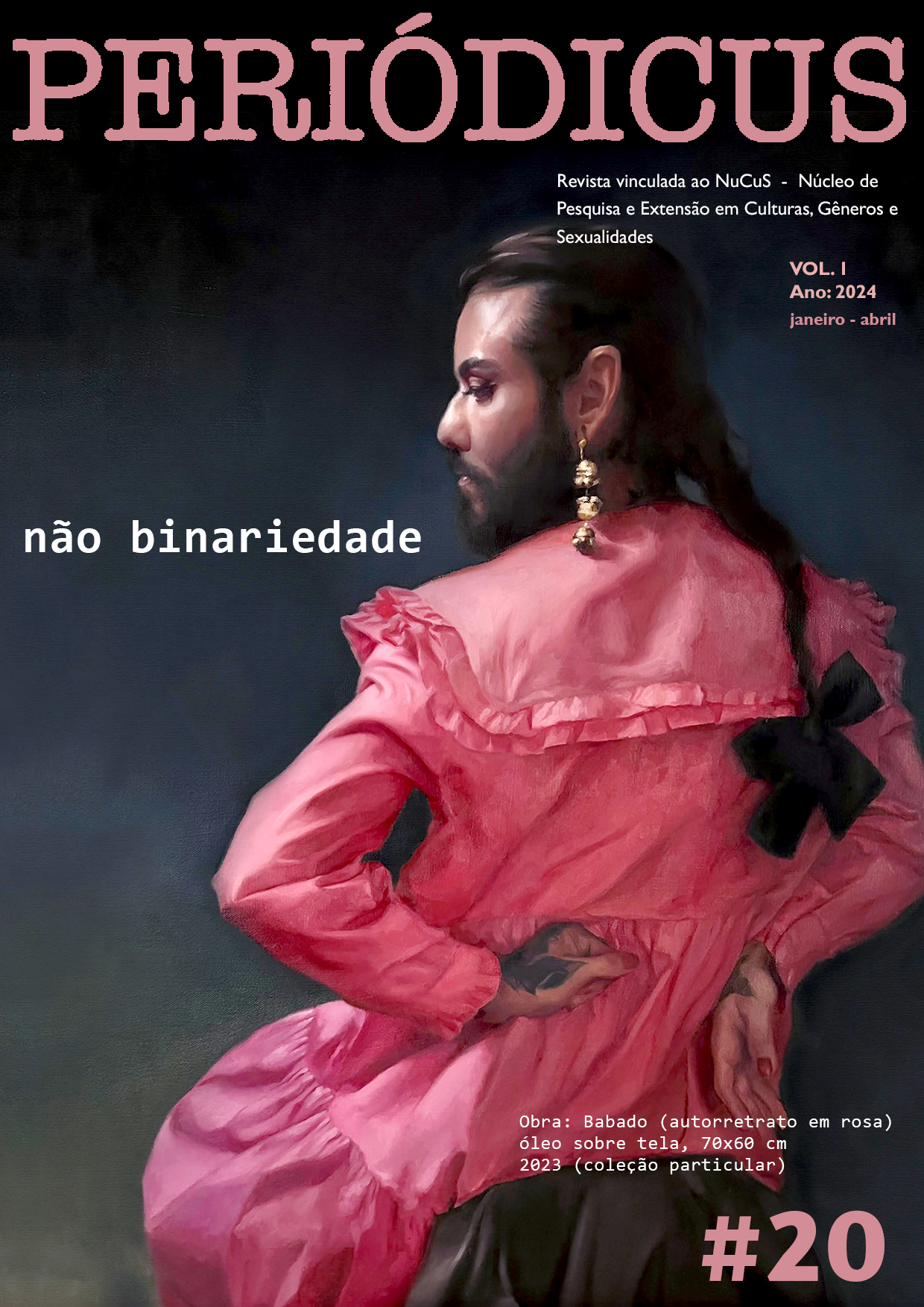Gender, non-binarity and coloniality
a decolonial reflection
DOI:
https://doi.org/10.9771/peri.v1i20.54680Abstract
This work is part of a master's research, which aims to analyze gender, masculinities and Brazilian legal provisions aimed at male perpetrators of domestic violence, from a decolonial reading. Here, understandings about gender constructed from the bibliographic review are exposed, with emphasis on non-binarity, based on decolonial perspectives, with the concept of gender coloniality. The categories of race and gender are understood as constructions of colonial domination, placed over apparent physical differences, as human bodies are plural and diverse. Even though gender diversity was widely observed prior to colonization, the colonial project, by failing to annihilate this plurality, also produced categories to account for these existences that were beyond their control. These constructs aim to reproduce a European way of being, transforming the lives of colonized peoples with racial and gender oppression, which remains until today.
Downloads
Downloads
Published
How to Cite
Issue
Section
License
Copyright (c) 2024 Fabiane Kravutschke Bogdanovicz, Kátia Alexsandra dos Santos

This work is licensed under a Creative Commons Attribution-NonCommercial 4.0 International License.
Authors who publish in this journal agree to the following terms:
Authors retain copyright and grant the journal the right of first publication, with the work simultaneously licensed under a Creative Commons Attribution Noncommercial License that allows the work to be shared with acknowledgment of authorship and initial publication in this journal, but prohibits commercial use.
Authors are authorized to enter into separate additional contracts for non-exclusive distribution of the version of the work published in this journal (e.g., publishing in an institutional repository or as a book chapter), with acknowledgment of authorship and initial publication in this journal.
Authors are permitted and encouraged to publish and distribute their work online (e.g., in institutional repositories or on their personal website) at any point before or during the editorial process, as this can generate productive changes and increase the impact and citation of the published work (see The Effect of Open Access).








